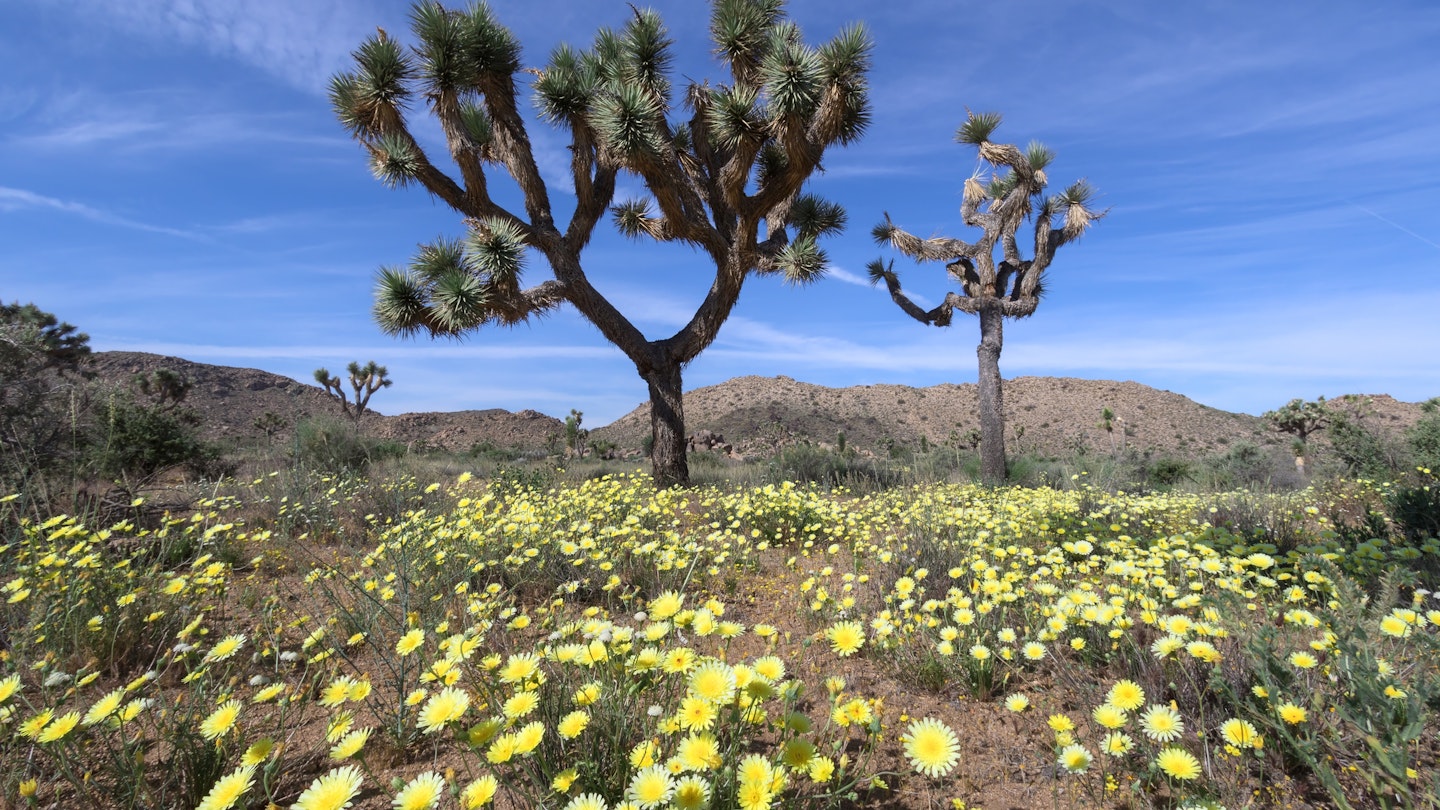Experience the Beauty of Spring in U.S. National Parks
Spring is a sensorial symphony in the U.S., and national parks provide front-row seats to the most spectacular shows. As winter loosens its icy grip on North America, an enchanting transformation unfolds: flowers bloom, waterfalls rage, and animals begin their seasonal migrations.
However, choosing the right park is crucial. Mud and lingering snow can create unpleasant hiking conditions, and some parks may not be fully operational until summer. Thus, it’s essential to plan your visit wisely to enjoy prehistoric mating rituals, rare superblooms, and seasonal creeks that only appear in spring. Visit between March and mid-June to witness landscapes bursting into life.
1. Big Bend National Park, Texas

Best for birding, hiking, and hopping in hot springs
Bird enthusiasts will find springtime in West Texas an avian odyssey. From late February to early May, migrating birds nest among the trees of the Chisos Mountains and the Rio Grande. Over 400 species have been identified within the park, including colorful visitors like yellow-breasted chats and painted buntings.
Moreover, during superbloom years, the iconic bluebonnet blankets roadsides with brilliant indigo hues. Spend your days floating down the Rio Grande, soaking in geothermal springs, or exploring the artsy town of Marfa nearby. Big Bend is also an International Dark Sky Reserve, perfect for stargazing.
2. Great Smoky Mountains National Park, North Carolina and Tennessee

Best for blooms and mountain trails
This park, affectionately dubbed “Wildflower National Park,” features over 1500 flowering plants. The most magnificent displays bloom between February and April, transforming the landscape with violets, trillium, and lady slipper orchids.
With around 800 miles of trails available, visitors might want to focus on the Schoolhouse Gap Trail for a delightful floral experience. Additionally, the park’s annual Spring Wildflower Pilgrimage offers guided hikes to appreciate local flora.
3. Yellowstone National Park, Wyoming and Montana

Best for wildlife watching and waterfalls
Yellowstone, America’s first national park, is known for its bubbling hot pots and explosive geysers. Late April brings an exciting opportunity to see baby animals, such as bear cubs and wolf pups, emerging from their dens.
As the snow melts, extraordinary waterfalls become a feature of the park, with the Yellowstone River’s Lower Falls thundering with 63,500 gallons of water plunging every second. Visiting during this season offers a chance to explore with fewer crowds.
4. Everglades National Park, Florida

Best for exotic mating rituals and kayaking
In the Everglades, adult male alligators perform elaborate mating displays from mid-April to mid-May. Visitors can enjoy the area through a variety of outdoor activities such as kayaking through mangrove tunnels.
April marks the end of the dry season, making for pleasant weather for exploration. Unlock the park’s wonders by renting a wilderness permit for unique camping experiences.
5. Joshua Tree National Park, California

Best for desert flora and rocky scrambles
Joshua Tree National Park is recognized for its iconic Joshua trees, but springtime also brings a spectacular wildflower display. While superblooms are unpredictable, wildflowers, including poppies and Indian paintbrushes, usually peak around March and April.
The mild temperatures between 70-80°F are ideal for outdoor adventures, from exploring the Wonderland of Rocks to rock climbing.
6. Great Sand Dunes National Park, Colorado

Best for sand sledding and skimboarding
As ski season winds down in Colorado, the Great Sand Dunes offer thrilling sand sledding experiences. Late April through May is ideal for enjoying moderate temperatures while gliding down North America’s tallest dunes.
Additionally, visitors can enjoy Medano Creek, created by snowmelt, perfect for skimboarding and tubing.
7. New River Gorge National Park and Preserve, West Virginia

Best for white-water rafting and rock climbing
April in West Virginia is perfect for thrill-seekers. The New River offers class five rapids, ideal for experienced rafters.
Rock climbers also find opportunities to explore over 1400 named climbs. After a day of adventure, enjoy local eats and brews in Fayetteville.
